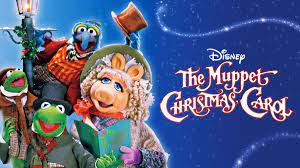Whether you’re a college-ready senior, prepared junior, or an overachieving underclassmen, the season of SAT and ACT dawns near. Already beginning in August, Summer Creek hosts monthly testing of the SAT and ACT, with its annual administration of the ACT coming around the corner.
While many colleges are becoming increasingly “test-optional,” the standardized scores serve as a great addition to anyone’s application. With proper preparation and productive studying, any student can come in and earn themselves an Ivy-worthy score.
Several top-scoring seniors had much to say, the central theme being practice.
“Practice tests, practice tests, practice tests,” Matthew Parks advised. “Practicing the math section can almost guarantee a perfect math score. They ask the same (stuff) in slightly different ways.”
Practice tests mean everything. They introduce you to question types, how they ask and how they answer. Familiarizing yourself with them is essential to earning a good score.
“Practice everyday, timing yourself for each section,” explained Zachary Houlton.
Houlton goes on to describe proper reviewing methods.
“Never make the same mistake twice,” he said.
Using practice tests, be sure to identify missed questions and whether or not they were “clueless” or “careless” faults. Studying your own habits of error can better prepare you for the real test.
Senior Sydney Nguyen commented, “You don’t really have to spend thousands of dollars for a tutor. Self-practice works.”
She goes on to say that tutors just guarantee the discipline to actually practice, but most of the resources are already available to students.
Parks continues, “Khan Academy is cracked.”
Khan Academy, a common student tutoring service that provides help in several subjects, recently launched their new SAT prep program. While proving useful for many, Khan Academy also helps to supplement any review on previous or future math concepts. The SAT/ACT both cover essential mathematics material such as basic pre-algebra, intermediate algebra, pre-calculus, and some statistics. Visiting this website prior to the test is great for brushing up on any holes in your math repertoire.
Preparing for these tests require the same amount of discipline and kind of preparation; The ACT and SAT are very similar. Most colleges have no preference in which they take. The decision to take either one lies on you as there are some few stark differences in how the tests themselves function.
The ACT without a written essay is composed of four sections: reading, English, math and science. The inclusion of a science section is one of the primary differences between the SAT. While both averaging around the same time total (SAT being about 15 minutes longer), time feels more integral to the ACT.
These sections move fast. When it comes to the reading and science portions, speed is everything. The questions themselves don’t pose major brain-boggling issues, it’s a matter of finishing.
While you can practice math skills or take practice tests to get comfortable, the reading section is mainly intuitive. Trust your first instinct! Listen to your gut and move on. Keep in mind that key information is also shared in the prefaces before any passage. These can help answer some thematic questions by already knowing the author’s background.
Test-taking may be nerve-wracking and deeply troubling for some. The most important tip is to practice good habits of self-care. Rest well the night before and simply do your best.
As Zachary Houlton says, “On the day of the test, remember to ACT (Always caffeinate thoroughly).”





![[File Photo] Band members perform during halftime in the 2024 football season.](https://schscreekside.com/wp-content/uploads/2025/08/DSC_7149-1200x800.jpg)












